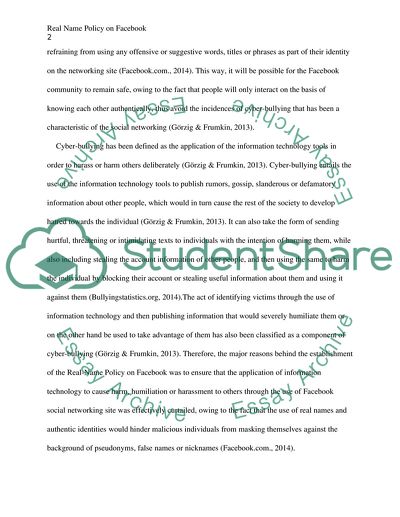Cite this document
(“Controversy of Real Name Policy on Facebook Research Paper”, n.d.)
Controversy of Real Name Policy on Facebook Research Paper. Retrieved from https://studentshare.org/social-science/1666435-real-name-policy-on-facebook
Controversy of Real Name Policy on Facebook Research Paper. Retrieved from https://studentshare.org/social-science/1666435-real-name-policy-on-facebook
(Controversy of Real Name Policy on Facebook Research Paper)
Controversy of Real Name Policy on Facebook Research Paper. https://studentshare.org/social-science/1666435-real-name-policy-on-facebook.
Controversy of Real Name Policy on Facebook Research Paper. https://studentshare.org/social-science/1666435-real-name-policy-on-facebook.
“Controversy of Real Name Policy on Facebook Research Paper”, n.d. https://studentshare.org/social-science/1666435-real-name-policy-on-facebook.


